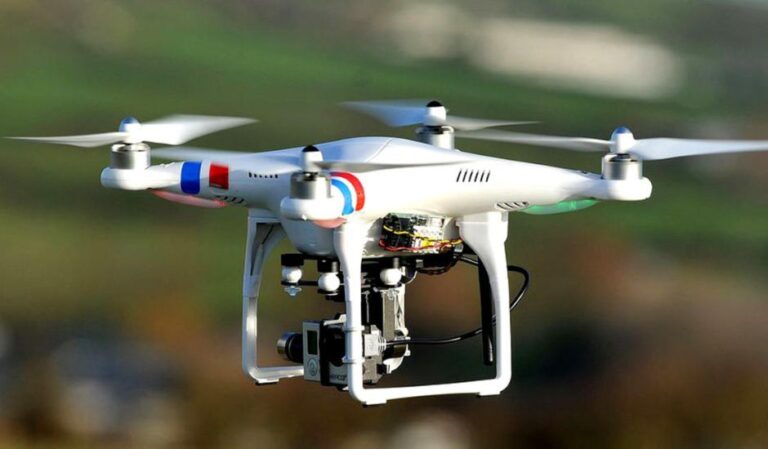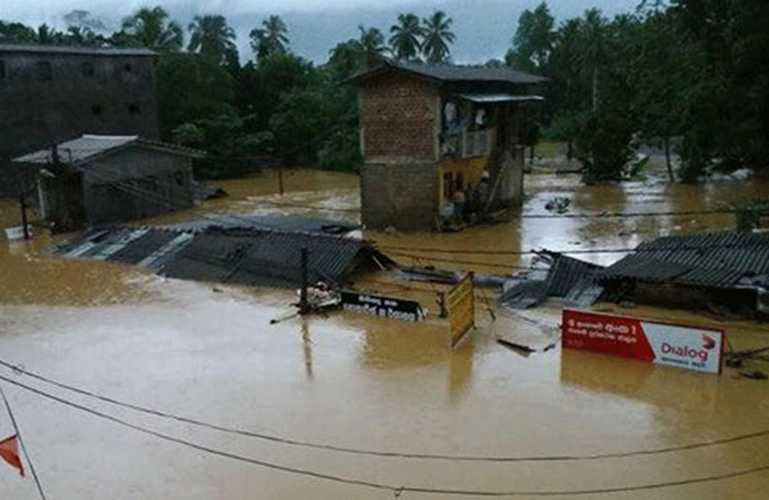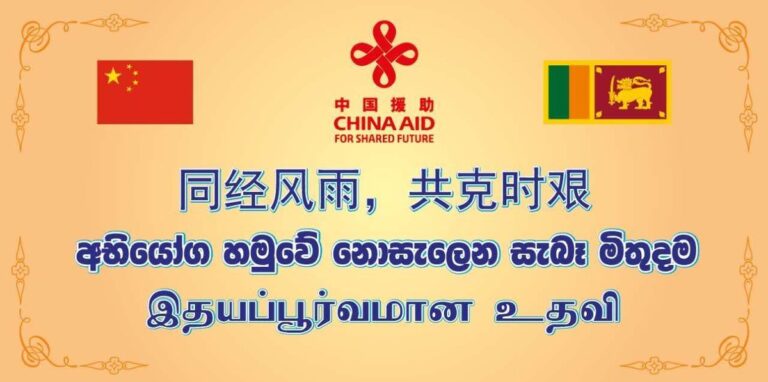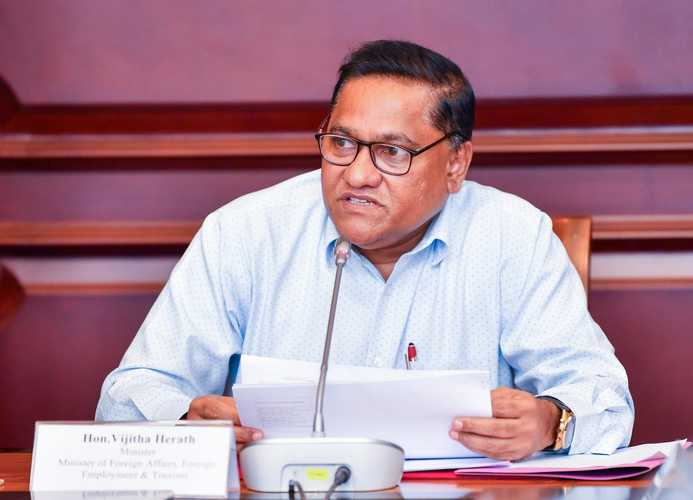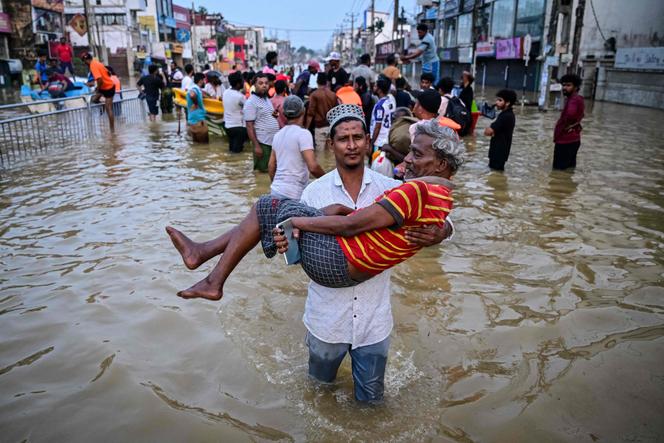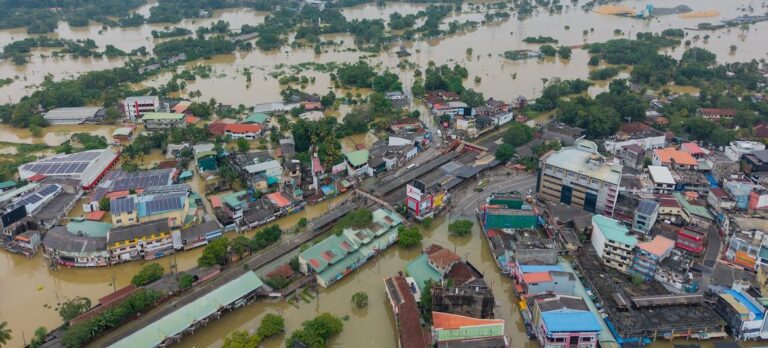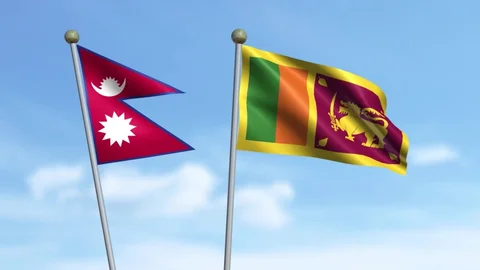December 01, Colombo (LNW): The Sri Lanka Air Force has appealed to the public to refrain from sending drones into areas currently grappling with natural disasters, stressing that such devices can disrupt crucial airborne relief missions.
According to officials, unauthorised drone activity has the potential to interfere with low-flying rescue aircraft, complicating efforts to deliver aid, evacuate victims and assess damage.
To ensure that emergency operations proceed without additional hazards, the Air Force has asked drone operators to provide prior notice before launching or landing their equipment.
Individuals wishing to fly drones are encouraged to make contact through the dedicated telephone lines—011-2343970, 011-2343971—or the general 115 emergency hotline.
Authorities added that, while drones can be useful for surveying conditions, coordination is essential during a crisis. Maintaining clear airspace, they noted, helps rescue teams move swiftly and safely, particularly when weather conditions or terrain make operations more challenging.
Air Force Calls for Strict Limits on Drones amid Ongoing Disaster Response
GovPay Launches Easy Donation Platform for Flood Relief in Sri Lanka
December 01, Colombo (LNW): A new digital facility has been introduced via GovPay to support Sri Lankans affected by the ongoing severe weather. The initiative is designed to make contributions to the Disaster Relief Fund, managed by the Ministry of Finance, both simpler and fully transparent.
The Ministry of Digital Economy confirmed that donors can now make instant contributions through the state payment portal at any time, with funds credited to the Disaster Relief Fund in real time. This allows individuals to provide support conveniently from home or on the go.
The platform is connected to a network of commercial banks and authorised FinTech applications, giving the public multiple options to contribute. The Ministry emphasised that all transactions are tracked transparently, ensuring that donations directly aid communities impacted by the floods and landslides.
For a complete list of supported banks and FinTech services, donors can visit: https://govpay.lk/si/supported-banks-fintech
Sri Lanka Flood Toll Rises to 355, Hundreds Still Missing
December 01, Colombo (LNW): The Disaster Management Centre (DMC) has confirmed that the recent extreme weather has claimed 355 lives across Sri Lanka as of 9:00 a.m. today (01).
Authorities also report that 366 individuals remain unaccounted for amid ongoing search and rescue operations.
The severe flooding and landslides, which have struck multiple regions, continue to disrupt communities and impede relief efforts.
Emergency teams are working around the clock to locate missing persons and provide aid to those displaced by the disaster.
China Pledges Support to Sri Lanka with Flood Relief Aid
December 01, Colombo (LNW): The Sri Lanka Red Cross Society has received emergency financial assistance of USD 100,000 from the Red Cross Society of China to aid ongoing relief operations following the recent devastating floods and landslides.
The Chinese Embassy in Colombo confirmed that additional support from the Chinese government is being arranged to assist those affected by the disaster. The Embassy highlighted that the extreme weather, triggered by Cyclone Ditwah, has resulted in significant loss of life and widespread damage to homes and infrastructure, and stressed that the Chinese people “stand in solidarity” with Sri Lankans during this crisis.
Local Chinese community groups in Sri Lanka have also contributed, with the Chinese Chamber of Commerce and the Overseas Chinese Association organising fundraising initiatives that have already raised approximately LKR 10 million for flood-impacted communities.
The Embassy expressed optimism that, guided by national leadership and bolstered by international assistance, Sri Lanka will recover from the catastrophe, rebuild affected areas, and emerge stronger in the coming months.
Rail Services Adjusted as Debris and Flood Damage Disrupt Key Routes
December 01, Colombo (LNW): The Railway Department has issued an updated schedule for train operations today, following continued blockages and safety concerns on several key railway corridors in the wake of recent severe weather.
On the Main Line, only a limited service will run, with 19 trains operating in both directions between Colombo Fort and Ambepussa. Authorities noted that services cannot proceed beyond this stretch for the moment, as crews are still working to clear fallen trees, earth slips, and other debris further up the line.
Meanwhile, 34 trains are expected to run along the Coastal Line, with officials confident that this route can maintain its regular timetable despite minor disruptions in a few low-lying areas.
Services on the Puttalam Line will also be partly restored, with 18 trains operating between Colombo Fort and Kochchikade via Negombo. Commuters have been advised to allow additional time for travel, as temporary speed restrictions remain in place on certain sections.
In the Kelani Valley corridor, 10 trains will be in operation, offering at least a basic level of connectivity to passengers who have been facing several days of uncertainty.
Railway officials said that engineers and maintenance crews are continuing round-the-clock work to restore full services, but cautioned that further changes may be announced depending on weather conditions and progress in clearing the affected tracks.
Government Sets Up Central Hub to Coordinate Overseas Aid for Flood-Hit Sri Lankans
December 01, Colombo (LNW): The Ministry of Foreign Affairs, Foreign Employment and Tourism has created a dedicated Emergency Coordination Unit to manage relief efforts for Sri Lankans affected by the recent floods, bringing a more structured approach to both assistance and communication during the crisis.
According to the Ministry, the new unit will act as the main channel for receiving and organising contributions sent from Sri Lankan missions abroad, foreign diplomatic offices based in Colombo, and a range of other international partners. Officials emphasised that all donations will be handled with full transparency, ensuring that support reaches those most severely impacted by the flooding.
Beyond overseeing aid, the unit will also help Sri Lankans living overseas reconnect with relatives in flood-stricken regions, providing a reliable point of contact at a time when communication links in several areas remain disrupted. The Ministry added that the team would facilitate the movement of overseas assistance so that supplies and funds offered by well-wishers can be delivered swiftly and responsibly.
The Emergency Coordination Unit is already working alongside the President’s Office, the Prime Minister’s Office, the Ministry of Defence, and other key agencies to maintain a coordinated national response as the country continues to recover from the widespread devastation.
Editor’s Note – “Do the People Matter?”
Faraz Shauketaly
(Broadcaster & Investigative Journalist)
Sri Lanka’s recovery from the devastating floods is starting whilst in some areas the people continue to be affected, trapped and otherwise challenged.
The inevitable search for answers and accountability has started as it will – when one is dealing with a well-informed populace.
There are many who claim that the Irrigation engineers did not release waters ahead of the disaster.
Of course, these are engineers not soothsayers. Professional men and women who know a little bit more than a thing or two about tech.
President AKD himself said – albeit before his ascendancy to the Presidency – that when it comes to managing rain waters and controlling or addressing floods gone are the days when you look at the clouds then say, ‘ it might rain’ and the next day you look at the rains and say my goodness it has rained heavily.
At the time MP AKD was critiquing the then powers in response to what is nearly a scheduled annual flooding, keeping the folks at Disaster Management gainfully employed. As a son of the soil personally I would like to see a proactive disaster prevention team in addition to the disaster management team. It’s like what my granny said – prevention is better than cure – and as a result, we were subject to drinking regular unadulterated liquid gotukola because it was a preventative measure.
The accusation now is that in the full knowledge (aided by the same tech that MP AKD spoke of) the relevant authorities did not manage the reservoirs in preparation for the predicted rainfall. That they started to empty reservoirs far too late.
It brings to my mind what was not done in the fortnight leading to the Easter Bombings – meaning that our intelligence authorities did not prewarn the Church and or tourism authorities and the public. In essence despite having intelligence – as opposed to information – these so-called experts in intel replete with super spies and who took on the ruthless terrorists with some considerable success simply omitted sharing this valuable knowledge with the citizenry. Not the details but with a heightened security apparatus deployed. The resulting callousness remains unforgivable.
My point is without ambiguity.
Advance intelligence on Easter Attacks (for whatever convoluted reason) was suppressed, and the public safety was compromised.
It now appears that advanced technology and therefore ‘intelligence’ surrounding the unprecedented rains was (for whatever convoluted reason) ignored – again compromising the safety of the public.
Will there be a Presidential Commission appointed under the Presidential Commissions Act to investigate these claims – or to put it another way, will (like we asked for during the Bond scam) there be a forensic audit of the events we write about in terms of the flooding?
It’s a Big Question.
Health Officials Warn Flood-Hit Communities to Safeguard Drinking Water
December 01, Colombo (LNW): Public health officials have issued a fresh appeal to residents in areas inundated by recent flooding, urging them to take extra care with their drinking water and general household hygiene as recovery efforts continue.
Chamil Muthukuda, Secretary of the Public Health Inspectors’ Union, cautioned that groundwater sources such as wells are likely to be contaminated after days of overflowing drains and stagnant floodwater. He advised families to rely solely on boiled water for drinking and food preparation, noting that the risk of waterborne diseases, including diarrhoeal infections, rises sharply in the aftermath of such disasters. He also underscored that children, in particular, should be given only boiled water to minimise health risks.
Muthukuda added that floodwaters often leave behind conditions ideal for mosquitoes to breed, especially in pockets of still water around homes. With mosquito-borne illnesses like dengue and chikungunya already a perennial concern, he encouraged households to clear debris, drain puddles, and maintain clean surroundings to curb the spread of disease.
He emphasised that vigilance over the coming days would be crucial, as maintaining safe water and preventing mosquito breeding could significantly reduce secondary health crises following the floods.
Nepal Extends Solidarity to Sri Lanka With Emergency Flood Relief Grant
December 01, Colombo (LNW): Nepal has stepped forward with a financial contribution to assist Sri Lanka as the island struggles to recover from devastating floods brought on by days of relentless rain. The support, valued at 200,000 US dollars, was confirmed on Sunday as part of Kathmandu’s humanitarian outreach to its regional neighbour.
Sri Lanka has been contending with severe destruction after Cyclone Ditwah swept across the country, unleashing widespread flooding and landslides. The Disaster Management Centre reports that the disaster has led to the loss of more than 300 lives, while hundreds more remain unaccounted for, making it one of the gravest natural calamities the nation has faced in recent years. Entire communities have been displaced, with infrastructure, farmland, and homes severely damaged.
In announcing the relief package, Nepal’s Ministry of Foreign Affairs conveyed its deep sympathy to the people of Sri Lanka, acknowledging the profound grief experienced by families who have lost loved ones. The ministry’s statement emphasised the long-standing ties between the two countries, noting that Nepal wished to stand “shoulder to shoulder” with Sri Lankans during a period of immense hardship.
The Nepali authorities also extended warm wishes for the swift healing of those injured and expressed hope that the assistance would contribute, even modestly, to the restoration of normal life for affected communities.
SLAF Pays Tribute to Veteran Pilot Killed in Flood Relief Mission
December 01, Colombo (LNW): The Sri Lanka Air Force has released a detailed statement following the death of a senior pilot during a humanitarian operation in the Lunuwila area of Wennappuwa, where communities had been struggling with severe weather and rising floodwaters.
According to the Air Force, the Bell-212 helicopter had been deployed to deliver food and essential supplies to residents who had gathered near the Lunuwila Bridge. As the aircraft attempted an emergency landing yesterday, the situation reportedly became hazardous when the weight of people crowded on the bridge caused it to sway, complicating the pilot’s efforts to bring the helicopter down safely.
The co-pilot and three other Air Force personnel survived the crash and are being treated at Marawila Hospital for injuries described as non-life-threatening. Medical teams had worked urgently in an attempt to save the pilot, Wing Commander Nirmal Siyambalapitiya, but he later died from his injuries.
Wing Commander Siyambalapitiya was regarded as one of the Air Force’s most seasoned helicopter pilots, having logged more than 3,000 hours in the air over the course of a long and respected career. Colleagues noted that he had been involved in numerous relief missions and was known for his calm approach under pressure.
An official inquiry has now been launched on the orders of the Air Force Commander, Air Marshal Bandu Edirisinghe. Investigators are expected to examine flight conditions, structural issues related to the bridge, and any operational factors that may have contributed to the tragedy.

